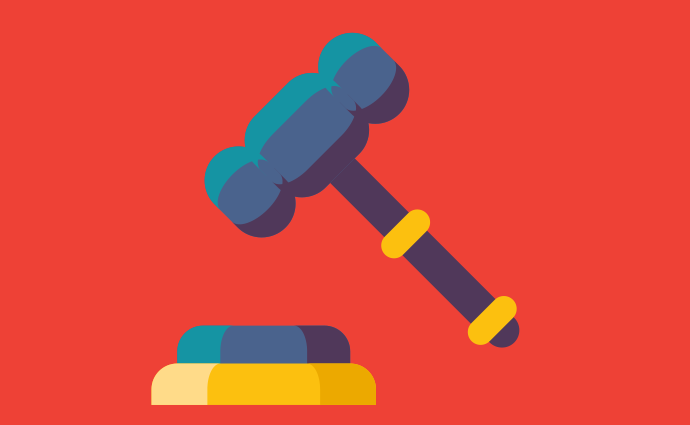HHS, DoJ Recovered $2.6B from Healthcare Fraud Schemes in 2017
False medical bills, pill mills, and other healthcare fraud investigations by HHS and DoJ recouped $2.6 billion in 2017, down from $3.3 billion last year.

Source: Thinkstock
- For every dollar the federal government spent on combatting healthcare fraud and abuse in the last three years, the government recovered $4, HHS recently reported.
While federal healthcare fraud investigations returned a significant amount of money back to taxpayers in the last three years, the most recent HHS report for the Health Care Fraud and Abuse Control Program also identified 2017 as a major year for the fight against fraud.
The federal government’s efforts to control and prevent healthcare fraud recovered $2.6 billion in taxpayer dollars in the 2017 fiscal year. A takedown led by HHS and the Department of Justice (DoJ) also proved to be the largest healthcare fraud enforcement operation in the department’s history.
The takedown occurred in July 2017 when the government charged 412 defendants across 41 federal districts for their participation in healthcare fraud schemes involving about $1.3 billion in false medical bills. Of the defendants, 120 were physicians charged for their involvement in illegal opioid and narcotics prescriptions and claims submitted to healthcare programs for those prescriptions, DoJ noted.
“Today’s report highlights the success of HHS and DoJ’s joint fraud-fighting efforts,” stated HHS Secretary Azar. “By holding individuals and entities accountable for defrauding our federal health programs, we are protecting the programs’ beneficiaries, safeguarding billions in taxpayer dollars, and, in the case of pill mills, helping stem the tide of our nation’s opioid epidemic.”
Through various control efforts, including the Health Care Fraud Prevention and Enforcement Action Team (HEAT), Healthcare Fraud Prevention Partnerships (HFPP), and Medicare Fraud Strike Force, the DoJ opened 967 new criminal healthcare fraud investigations in 2017.
Of the total investigations opened, federal prosecutors filed criminal charges in 439 cases involving 720 defendants, the reported showed. Courts convicted 639 defendants for their involvement in healthcare fraud-related activities last year.
The DoJ also opened 948 new civil healthcare fraud investigations in 2017, with 1,086 civil cases pending by the end of the fiscal year.
HHS also played a role in combatting healthcare fraud and abuse last year. The HHS Office of the Inspector General (OIG) carried out 788 criminal actions and 818 civil actions against individuals and entities involved in Medicare and Medicaid fraud schemes. The actions included false claims lawsuits, civil monetary penalty settlements, and administrative recoveries associated with provider self-disclosure issues.
Additionally, HHS-OIG excluded over 3,200 providers and entities from participating and billing Medicare, Medicaid, and other federal healthcare programs.
Of the 2017 exclusions, 266 involved patient abuse or neglect, 973 involved licensure revocations, and over 1,200 involved criminal convictions for crimes related to Medicare and Medicaid. Another 309 exclusions were for criminal convictions for crimes related to other federal healthcare programs.
“These exclusions help to safeguard beneficiaries from future harm that could otherwise be inflicted by such convicted individuals or entities,” HHS explained. “HHS can also suspend Medicare payments to providers during investigations of credible allegations of fraud.”
Common fraudulent activities that prompted investigations and exclusions in 2017 included:
• Providers operating pill mills out of their offices
• Providers submitting false claims to Medicare for ambulance transportation services
• Clinics submitting false claims to Medicare and Medicaid for physical and occupation therapy
• Drug companies paying kickbacks to providers for drug prescriptions and pharmacies requesting and receiving kickbacks from drug companies for drug promotions
• Companies misrepresenting EHR software capabilities to customers
With false Medicare claims remaining a top healthcare fraud activity, HHS pointed out that the healthcare program reviewed more than 4 million claims each day in 2017. As a result, Medicare reviewed over 1 billion claims for proper reimbursement.
CMS uses automated edits to review such a large volume of claims. The National Correct Coding Initiative, which aims to decrease improper payments, saved Medicare $186.9 million during the first nine months of 2017, HHS reported.
HHS and DoJ investigations were on par with the previous year’s numbers although the amount recovered was significantly lower in 2017.
In 2016, DoJ opened 975 new criminal and 930 new civil investigations. HHS-OIG investigations also resulted in 765 criminal actions and 690 civil actions. The HHS watchdog excluded 3,635 individuals and entities from Medicare, Medicaid, and other federal healthcare programs in 2016.
New and closed cases in the 2016 fiscal year resulted in $3.3 billion in payment recoveries, $0.7 billion more than 2017.
“While the program continues to be very successful, the return on investment fluctuates from year to year, in part because cases resulting in large settlements take multiple years to complete,” HHS explained. “Additionally, there has been a reduction in large monetary settlements as many of the large pharmaceutical manufacturers have entered into Corporate Integrity Agreements with the HHS Office of the Inspector General to establish protections against fraudulent activities.”
HHS and DoJ intend to keep healthcare fraud prevention and control a top priority going into 2018.
